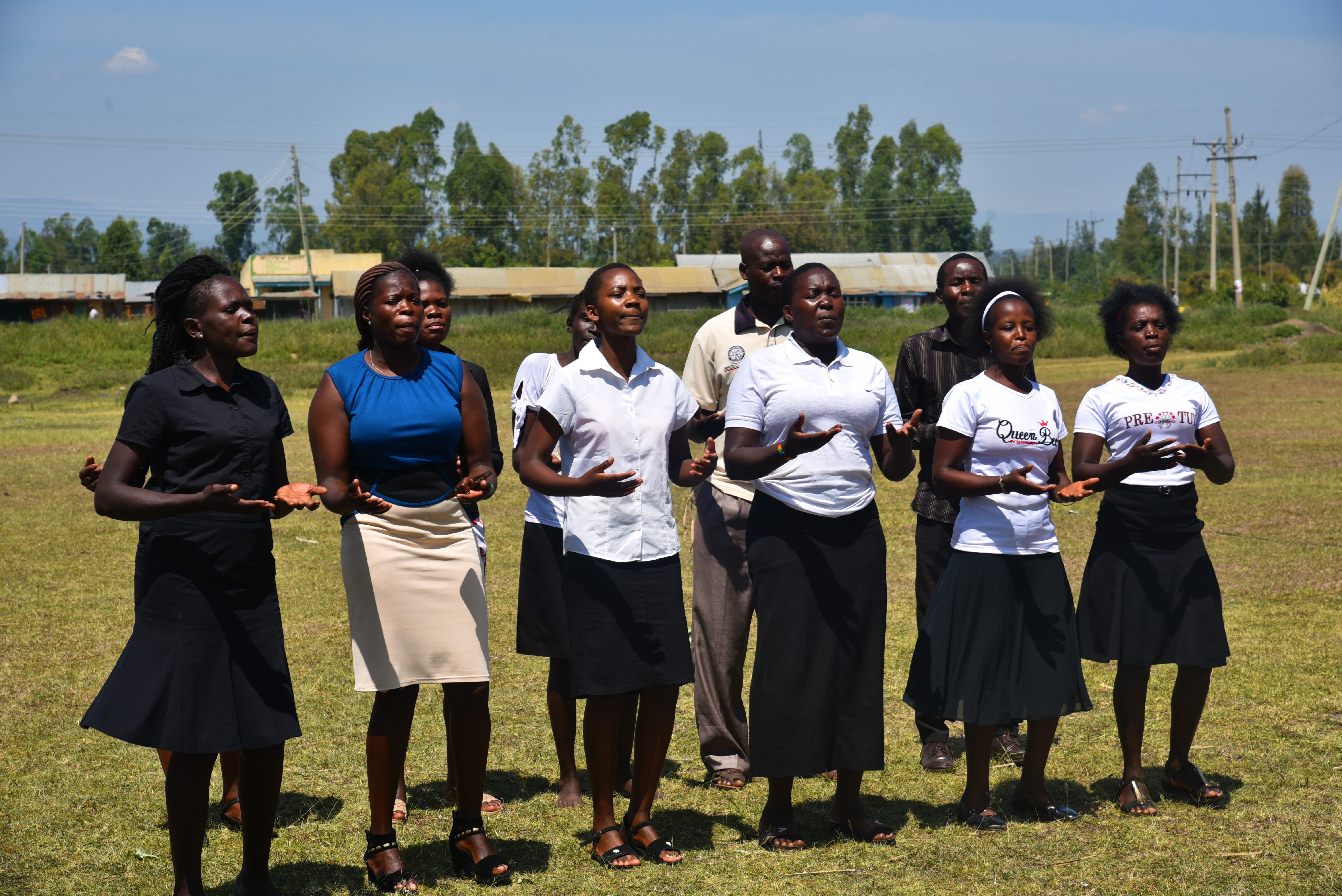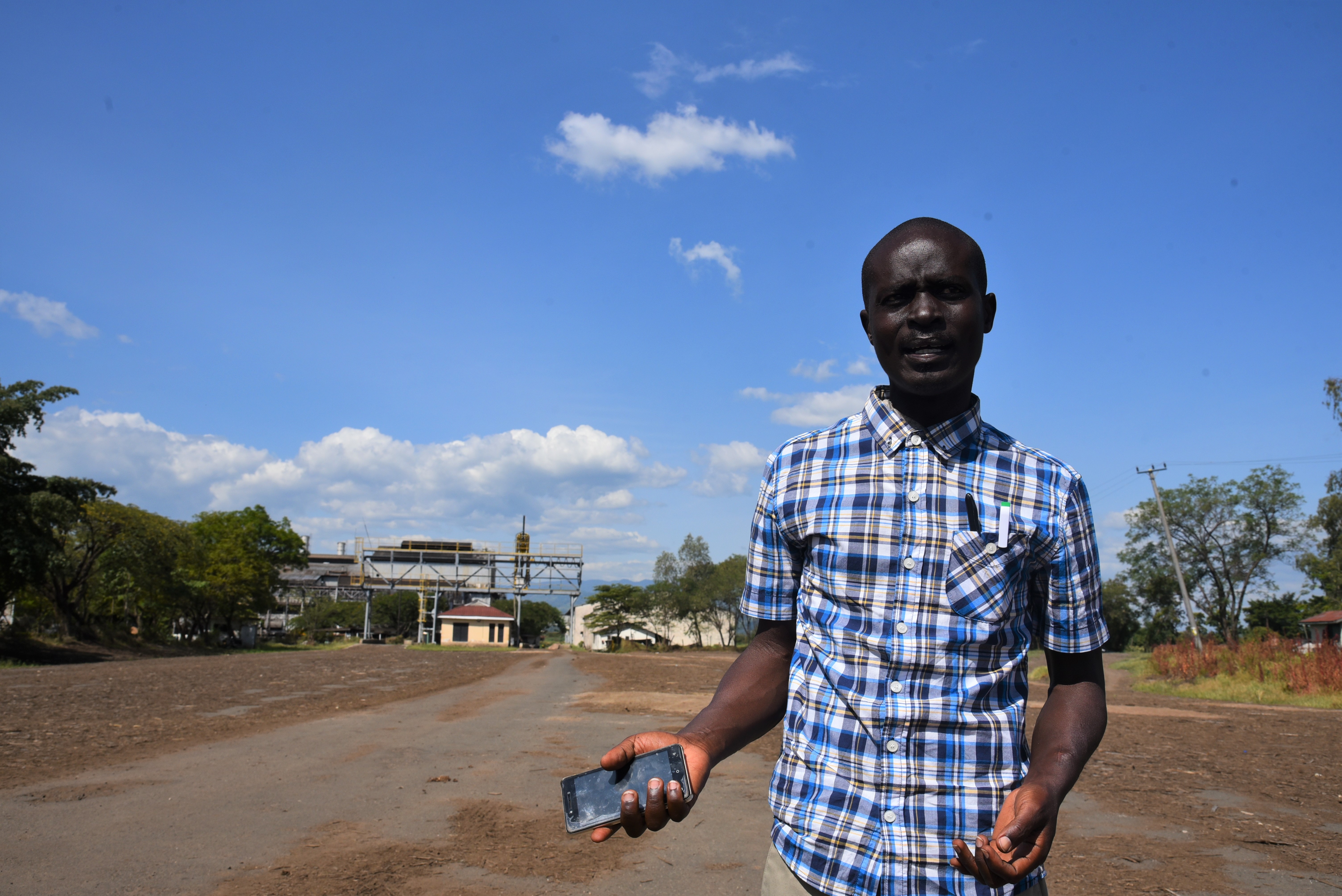Ethnic tensions, historical injustice and a sugar industry: Kisumu's conflict hotspot
Date:
Kisumu and Nandi are neighbouring counties in Western Kenya. Their predominant ethnicities mirror the tribal background of the two leading presidential candidates in this year’s election. Mixed with historical injustice and sustained socio-economic pressures, the border region has been identified as a hotspot for elections-related violence. National-scale efforts are aiming for peaceful elections in the region – ensuring women’s voices are heard in these peace and security discussions.

"Tension is increasing. There are a number of factors that contribute, key among them are mismanaged political processes and unfair selection of candidates [for the general election],” explains Dorothy Bonyo, 65-year-old treasurer of the Muhoroni sub-county peace committee. “Our neighbours are effectively political opponents and in the marketplace we are beginning to see hate speech. But my recommended approach has always been consistent dialogue - plenty of meetings - to drive home that there are alternative means to resolve our differences. I’ve spoken to local political leaders and impressed upon them that their actions must be measured so people do not die."
But its not just about the politics. The area once thrived from a sugar industry that employed around 20,000 people until misappropriation of profits and corruption decimated the trade, leading to job losses and low cash flow for many families. Oscar Ochieng is the secretary of Muhoroni sub-county peace committee as well as the Kisumu and Nandi cross-border peace committee. He explains that in addition to socio-economic, there is a historical disagreement over land:
"With low employment and little cashflow, kids drop out of school, and there’s a large number of disengaged youth. This leads to stock theft and eventually violent conflict. These companies are located right on the borders and much of the land is fallow. But it is also highly fertile and both communities feel it belongs to them."

Women Peace Power
Community action – and particularly from the community’s women – is crucial in negotiating peace. For Oscar, "our women’s contribution to local peace infrastructure is what has contributed to the little peace we have enjoyed. For example, in 2014, a month-long conflict halted trade between the two communities. It was the women from both sides who met and brokered peace. Women play a fundamental role in peace advocacy in this region."
Community dialogues, called barazas, are effective platforms to discuss such concerns. In a recent meeting, both communities came together and listened to one another with voices from young, old, male and female, with state security actors and religious leaders also in attendance. One of those voices was Marueen Omwiti, single mother of three and bar owner in Muhoroni. For the past three years she has also been volunteering for a theatre group that confronts the community’s sensitive issues through theatre performances:
"After every performance we give the audience time to talk and contribute. The first play was about politics and we heard many of the audience talking. We are trying to persuade people [ahead of the election] to focus on manifestos, not personalities. Handouts are another big problem that create tension and can lead to violence."
Ethnic tensions in Muhoroni have been the source of intense trauma for Maureen and many others, but she is committed to showing her community that vengeance is not the right answer:
"I think peace is the best option. Having that grudge will not help. But you need support. As an ambassador of peace, it starts with yourself. The community see me, and they know that I was once a victim. It makes them think, reflect and that has an impact."
In August 2022, UN Women completed a series of capacity building sessions to 186 local peace actors in 12 hotspot counties. The course included issues on conflict prevention and election preparedness and was conducted under Kenya’s UWIANO Platform for Peace, the forum gave an opportunity to the peace actors to develop scenarios and strategies of handling election violence in their respective counties – a national network of state, non-state and international partners including UNDP and chaired by the National Cohesion and Integration Committee (NCIC).